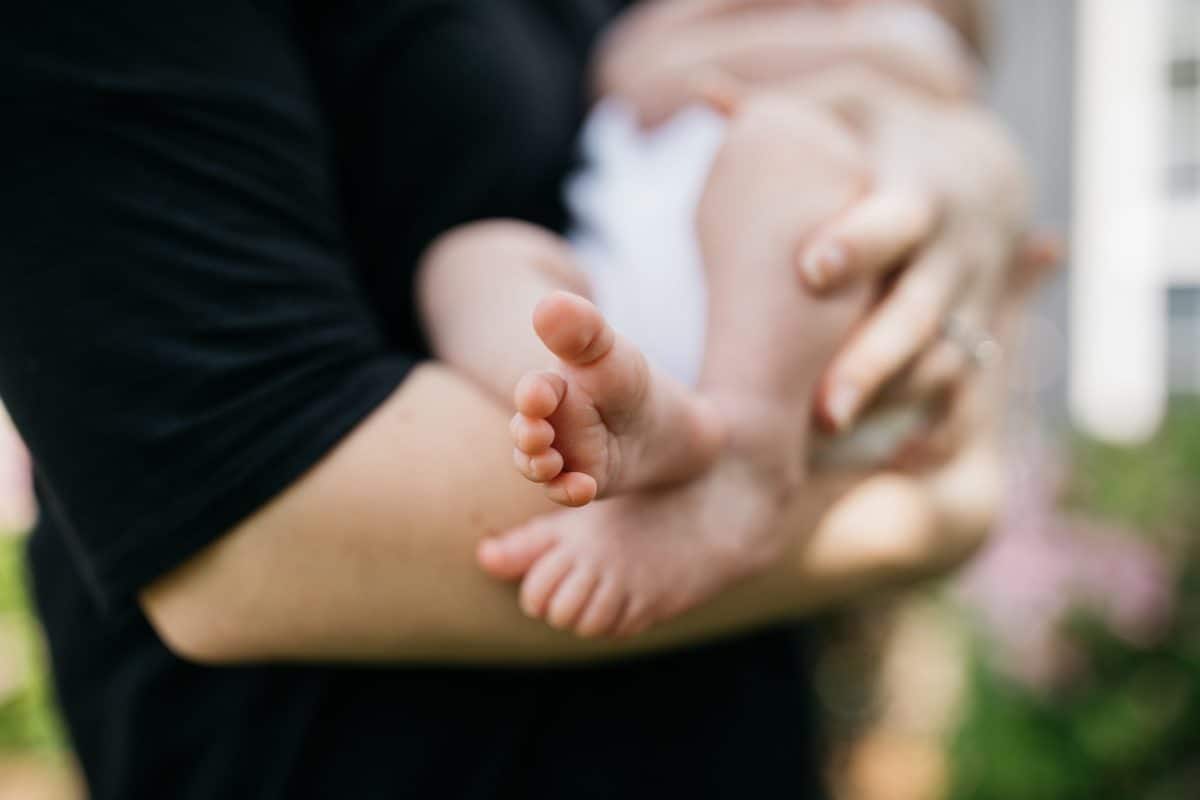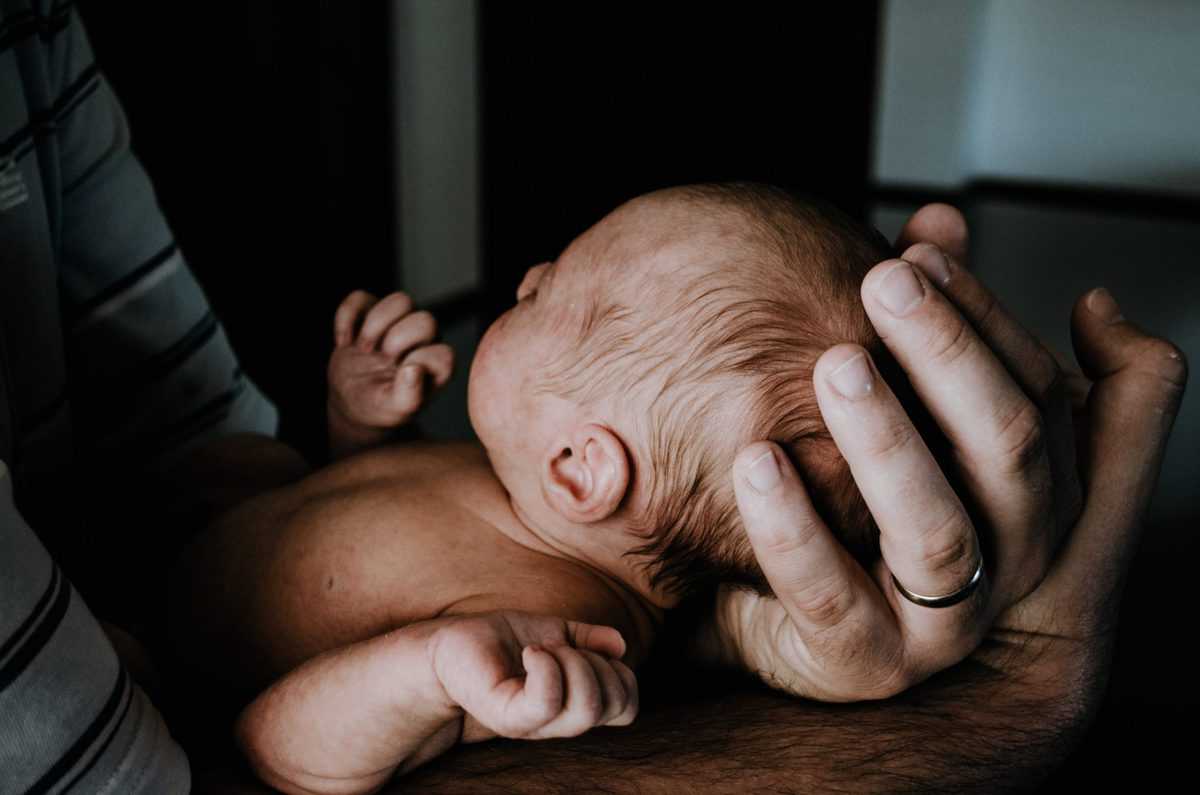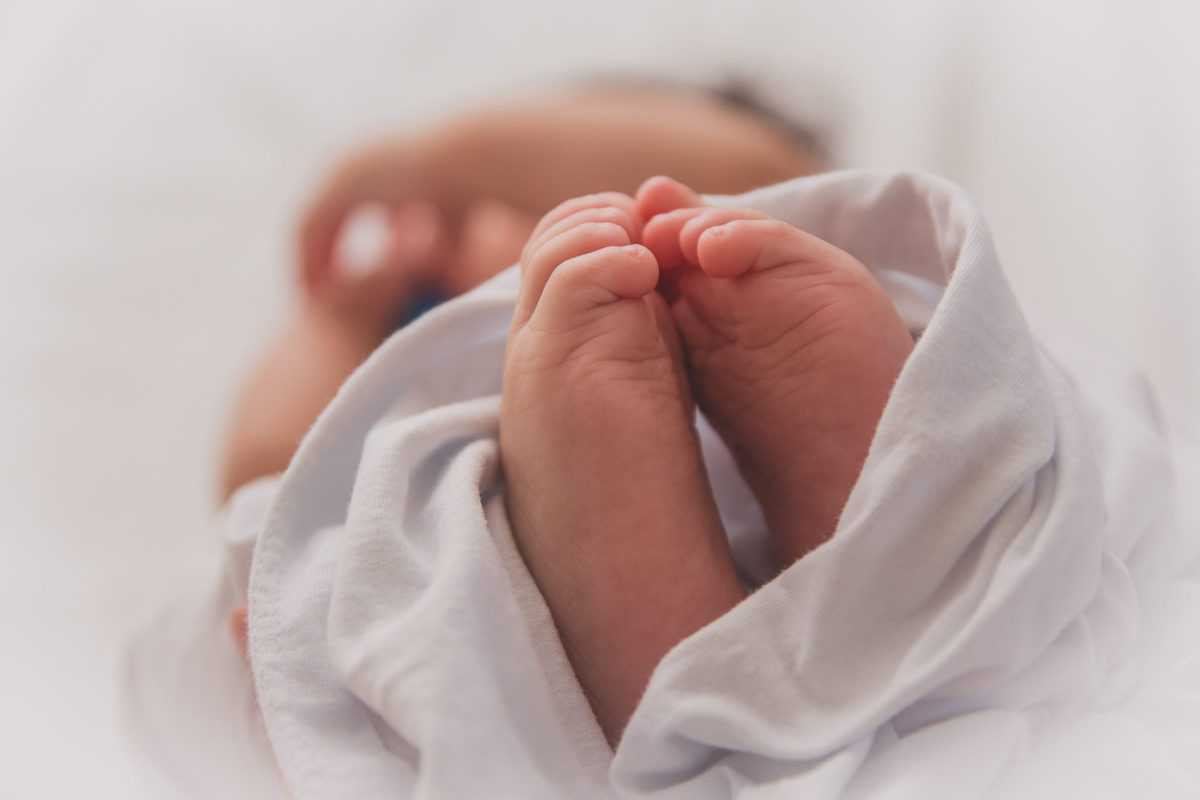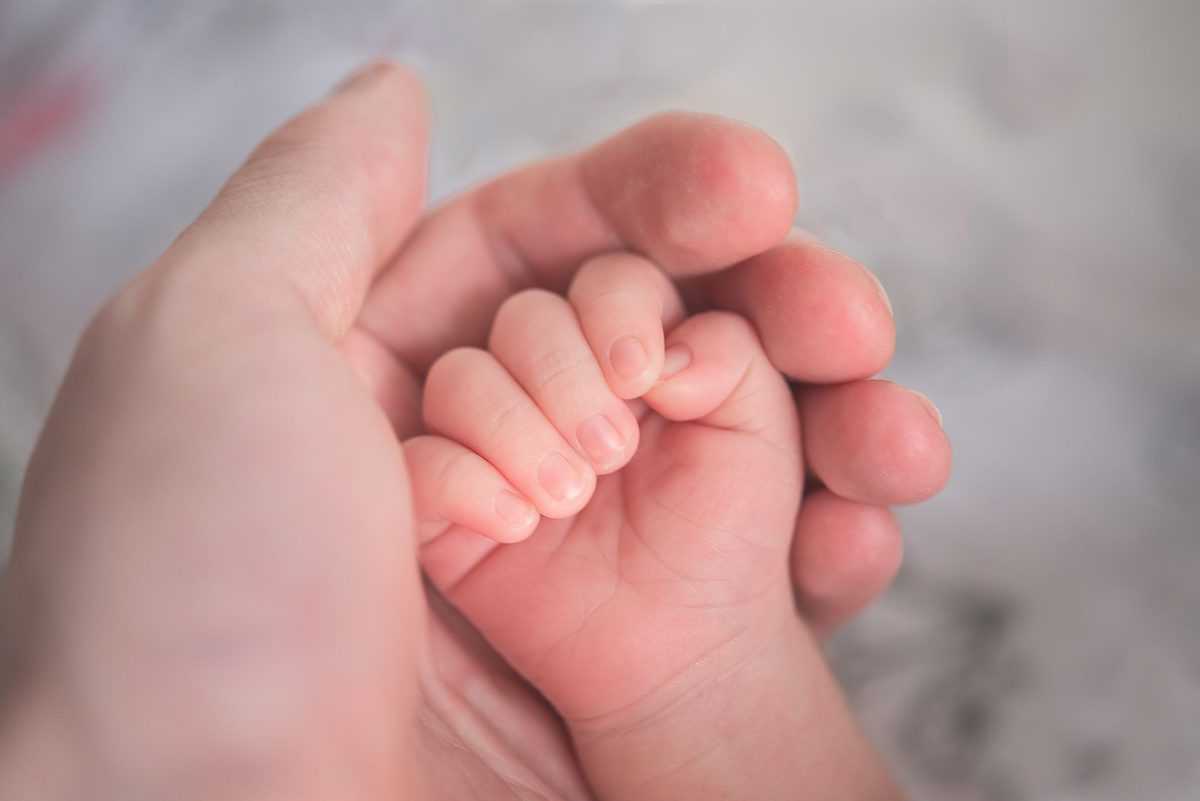We examine the research on whether or not drinking coffee while breastfeeding poses any risks for babies and moms.

As a foodie and dietitian, I honestly never knew the true meaning of sacrifice until I became pregnant. No soft cheeses? Sucks, but I’ll manage. No evening glass of red wine? It hurts, but I’ll survive. But coffee? Ugh. Thank goodness it’s suggested the 200-300 mg or less of caffeine in pregnancy is safe- about the amount in 2 cups of joe.
Having said that, some of us with miscarriage history still played it safe, and it wasn’t until I gave birth that I craved coffee again. But does drinking coffee while breastfeeding or pumping involve any postpartum risks?
Caffeine and Breastfeeding 101
Well, even though baby is no longer inside you, if you’re breastfeeding, you’re still providing baby with its sole source of nourishment. Breastfeeding in and of itself comes with a whole new set of struggles and sacrifices and I’ve shared all about my experience with breastfeeding which you can read about right here. But when it comes to the safety of incorporating coffee back into our postpartum routines, it’s easy to get swayed by the mixed opinions in parenting circles warning of the potential dangers (I know I certainly was). But what does the science say about the safety of consuming caffeine for us coffee lovers? And how much caffeine can you truly have while breastfeeding?
Does Caffeine Get into Breastmilk?
Short answer: yes, it is possible for caffeine to get into breastmilk through the bloodstream. However, according to the American Academy of Pediatrics (AAP) breastmilk contains less than 1% of caffeine taken by mom. While the amount of caffeine that gets into breastmilk is generally too low to pose any negative effects, the total concentration of caffeine in the breastmilk largely depends on:
- Caffeine sensitivity
- The time between caffeine intake and feeds
- The amount of caffeine consumed

Caffeine Sensitivity
On average, it can take around over 4-6 hours for half of a substance’s caffeine content to clear from our systems after consumption. However, the amount of time can vary from person to person depending on their caffeine sensitivity. Caffeine sensitivity refers to how efficiently an individual’s body (specifically, their liver) is able to metabolize caffeine. Variations in the amount of enzymes in our livers determines how we metabolize caffeine and can depend on things like age, gender, medications, and genetics. So, for example, fast metabolizers can tolerate several cups of coffee a day or even have a cup of coffee right before bed and fall asleep an hour later. On the other hand, slow metabolizers may find themselves jittery and anxious from a single cup of coffee and may also find that the effects of caffeine take a long time to wear off. That’s me!
Compared to adults, it’s no surprise that babies are much more sensitive to caffeine and it can take several hours or days for caffeine to clear from their system if they’ve been exposed. To compare, let’s take a look at the amount of time it takes for caffeine in the body to decrease down to half of its starting dose (aka its half-life).
- Newborn: up to 97.5 hours (approx. 4 days)
- 3-5 months old: 14 hours
- 6+ months old: 2.5 hours
- Adult: 5 hours
As you can see, newborns are extremely sensitive to caffeine making it very possible for them to experience caffeine stimulation. It can also take approximately five half-lives to eliminate a substance completely from the body. This means it could take up to 20 days total for an infant’s body to completely rid itself of caffeine, compared to adults who take around 10 hours on average for their body to completely clear their systems from caffeine. However, some research shows that genetics may play a role in how long caffeine stays in your system, so it could take more or less time depending on the individual. Signs of caffeine stimulation to be aware of in baby’s include irritability, fussiness, or under-sleeping.

Timing of Feeds
The concentration of caffeine in the blood and breastmilk is thought to typically peak at around 1-2 hours after consumption. If you’re concerned about overstimulating baby, you can simply go easy on the coffee while breastfeeding. Keep in mind that some individuals may be slow metabolizers of caffeine, so it is important to still look out for any signs of caffeine stimulation in baby even if you are spacing out your feed 1-2 hours post-caffeine intake.
Amount of Caffeine Consumed
Research shows that caffeine consumption exceeding 300 mg per can increase the likelihood of an infant showing symptoms of caffeine stimulation. It can also take 1-2 weeks of either decreasing or halting all caffeine for this tapering to affect the baby. As mentioned, depending on mom and baby’s tolerance to caffeine, baby can potentially be stimulated by smaller amounts. So bear this in mind as you gradually increase your caffeine intake postpartum and monitor baby for symptoms of caffeine stimulation.

Coffee While Breastfeeding: How Much Can You Have?
The recommended guidelines for caffeine consumption while breastfeeding suggest that 200-300 mg of caffeine per day is considered safe. Here are some examples of what this would look like for common caffeinated beverages:
- Two cups of coffee
- Six cups of black tea
- Two 16oz cans of monster energy drinks
- Four 500ml bottles of coke
- Eight cups of green tea
- A short coffee
- A double espresso
Research shows that if caffeine consumption is kept within the recommended guidelines, the amount that can be passed onto an infant through breastmilk would be so small that it would be considered negligible. Therefore, it is totally possible to enjoy a caffeinated beverage or two while still keeping your intake within the recommended amount considered safe for breastfeeding.
Caffeine in Matcha vs. Coffee While Breastfeeding

Matcha tea has quickly become the caffeinated beverage of choice for multiple reasons. One, because it has three times more caffeine than standard green tea, and two because it has a “slow burning” effect on energy levels, compared to the energy spike and subsequent crash that coffee often provides. To compare, 1 cup of matcha green tea contained about 77mg of caffeine which is similar to 1 cup of coffee which contains around 95 mg of caffeine. Despite the caffeine content in matcha being similar to that of coffee, the body metabolizes the caffeine from matcha differently. This effect is due to an amino acid in matcha called L-theanine, which helps the body to absorb caffeine at a slower rate. Due to the effect of this amino acid, matcha provides a more stable source of energy that doesn’t result in the same crash. This means that slow metabolizers of caffeine may find themselves less jittery or anxious by swapping a cup of coffee for a cup matcha, while still reaping the energizing benefits of caffeine.
However, does the “slow burn” effect of matcha impact the caffeine intake of breastfeeding mothers? Well, according to the Centres for Disease Control and Prevention, no matter the source of your caffeine fix, the answer to the question “How much caffeine can you have while breastfeeding?” being 200-300mg of caffeine per day remains the same.
Does Caffeine Cause Sleep Disturbances for a Breastfed Baby?

Most babies will not show any signs of having adverse sleeping effects, so long as their breastfeeding parent is consuming moderate amounts of caffeine throughout the day within the 200-300mg range. However, babies who are exposed to higher amounts of caffeine have been reported to show certain behavioural patterns, such as being fussy, irritable, and having a hard time falling and staying asleep at night. This is important to note as a parent, because lack of sleep in an infant may result in poor functioning throughout the day, growth disturbances, poor memory consolidation, lack of concentration, and substandard energy levels. A child who is not getting enough rest may also present as moody, irritable, drowsy, restless, and unable to wake up in the morning. This is all just to say that a well slept baby is important for a multitude of reasons and for any of my readers who have children of their own – you’re probably WELL aware of the effects of baby not getting adequate sleep (not fun). It’s therefore important to take note any of the signs of sleep disturbance as you begin to increase your caffeine intake postpartum.
The good news is that research has shown that so long as you consume no more than the recommended 200-300mg amount of caffeine per day, you should be in the clear. One prospective cohort study found no significant evidence to suggest that consuming up to 300mg of caffeine while breastfeeding can negatively impact baby’s sleep. However, a recent cohort study from 2021 showed that small reductions in neonatal anthropometric measurements with increasing caffeine consumption were observed.
Findings also suggest that caffeine consumption during pregnancy, even at levels much lower than the recommended 200 mg per day of caffeine, are associated with decreased fetal growth.
Another study looking at the effect of consuming more than 300mg of caffeine per day while breastfeeding, found that it increased the likelihood of restlessness, irritability, and sleep disturbances for baby. These sleep disturbances were reported to have subsided within two weeks of a mother terminating all caffeine intake. But again, these effects may be different depending on an individual’s caffeine tolerance. Meaning, it may be possible to consume the recommended amount of caffeine and still see caffeine stimulation in baby, particularly if you are more sensitive to caffeine. It is therefore important to continue to monitor the quality of baby’s sleep as you gradually reintroduce caffeine into your day-to-day life.

Does Caffeine Reduce Breast Milk Supply?
This is a very common myth, however, there is no evidence to suggest that caffeine directly reduces breast milk supply, as long as consumption is kept within the recommend range. However, it is possible for there to be a chain-effect if baby becomes jittery from consuming too much caffeine from breastmilk resulting in decreased appetite. Consequently, a parent will likely find a decreased supply of breastmilk due to the reduced amount of nursing. In this case, it is advisable for a breastfeeding person to eliminate all caffeine for approximately one week to ensure their infant’s appetite returns to normal. Another scenario that can result in reduced breast milk supply is a parent becoming dehydrated due to excessive caffeine consumption, subsequently lowering their production of breast milk (although this would take an extreme amount of dehydration). To prevent dehydration and any subsequent impact on breastmilk supply, aim to drink around 2-3 litres of water per day while also incorporating a variety of water-rich fruits and vegetables in your diet.

Does Coffee While Breastfeeding Cause Growth or Development Issues in Babies?
Relating to concerns about coffee while breastfeeding, it is a common myth that caffeine consumption can cause growth and development issues for children. However, no substantial evidence exists to prove that this is the case. A study conducted analyzing the relationship between mild caffeine consumption and newborns found no adverse consequences for development, temperament, or behaviour. This misconception originates from the belief that caffeine can interfere with calcium absorption, which is crucial for bone health and bone formation. Calcium malabsorption can lead to a number of serious health problems, such as osteoporosis, wherein one’s bones become brittle and fragile from loss of tissue. Signs of calcium deficiency in infants can include a variety of mental and physical symptoms, such as erratic emotional behaviour, irregular teeth formation, protruding belly, loss of appetite, frequent episodes of sickness due to weakened immune system, sleeplessness, insufficient growing patterns, and low blood pressure.
However, there are a number of ways to prevent calcium deficiency in infants as well; despite breast milk being the primary source of calcium for a newborn, you can also optimize your child’s calcium absorption by making sure they have adequate access to sunlight, as vitamin D from the sun helps to ensure optimal calcium absorption. In dire cases, calcium can also be administered through the bloodstream of an infant, although this method is only recommended for extreme cases of calcium deficiency.

All of this being said, the reduction in calcium absorption that can result from caffeine consumption has actually been found to be so small that it is considered negligible when analyzing the entirety of a child’s health and development; this quantity is even more insignificant when assessing the minor amount of caffeine that may appear in breastmilk. There is no substantial evidence to prove that caffeine can directly cause growth or development issues in children.
Does Caffeine Cause Digestive Issues in Breastfed Babies?
It is possible for caffeine to cause digestive issues for a child through breastmilk depending on the amount of caffeine consumed and caffeine sensitivity. In addition, because a newborns liver is not fully developed, they are unable to break down caffeine for proper digestion especially if they’ve been exposed to a high concentration via breastmilk. As a result, caffeine can remain in a baby’s system for longer than it should, potentially delaying the rate of gastric emptying, therefore resulting in fewer bowel movements.
One of the more common potential digestive issues that can result from consuming caffeine through breastmilk is constipation. Constipation in newborns can present as firm stools or less than one stool per day for more than two weeks (though it’s not abnormal for a breastfed baby to poop less than a formula fed one – every baby is unique). It’s mainly important that baby is still gaining adequate weight so always check in with your doctor. If your older breastfed child has begun eating solids, you can also to try incorporating more water as well as high-fibre foods into their meals such as whole grains, fruit, veggies, and prunes which also have a laxative effect.
Some mothers may find that another potential digestive issue that can result from caffeine in breastmilk is the exacerbation of acid reflux, which is already a common condition in newborns. Acid reflux occurs because the lower esophageal sphincter, which is intended to keep stomach acid from rising back up into the esophagus and throat, malfunctions in infants due to the fact that it is still under-developed. Methods for treating acid reflux in babies includes holding your baby upright for 30 minutes post feeding, feeding your child smaller and more frequent meals, and thickening their bottle with cereal or attempting solid food (with your doctor’s approval).
To avoid acid reflux from caffeine, it is recommended for caffeine intake to be spaced out between feeding/pumping, leaving 1-2 hours for the caffeine to metabolize beforehand. In addition, acid reflux is less likely to occur if caffeine intake is kept within the recommended range. However, like we mentioned previously, continue to monitor your baby’s symptoms to really gauge their tolerance and any adverse effects from caffeine exposure via breastmilk.

Alternatives To Caffeine While Breastfeeding
That wraps up our discussion on the impacts of having caffeine like coffee while breastfeeding. However, if you are worried about baby being exposed to caffeine through breastmilk, there are a number of caffeine-free options you can try when you’re in need of an energy fix (as most new parents are). Here is a list of some healthy alternatives to caffeine to replace your morning cup of joe:
Golden Milk Latte
I know, a turmeric latte is not the same as a coffee latte. However, replacing your morning coffee or tea with this delicious alternative might satisfy that craving for a warm beverage. Not only does a golden milk latte taste amazing, it is also full of anti-inflammatory health properties (thanks to our friend, turmeric), and contains zero caffeine.
A Balanced Breakfast
A balanced meal made up of protein, healthy fats, and carbohydrates will not only energize you, but also ensure stable blood sugar levels to help power you through your morning. Some great examples of energizing breakfasts include eggs and avocado on top of whole grain toast, Greek yogurt paired with fruit and/or granola, or a smoothie packed with protein, nut butter, and fruits/veggies.
Staying Hydrated
Dehydration can often result in fatigued and low energy levels. In addition, caffeine acts as a mild diuretic, which can cause you to go to the bathroom more often, thereby flushing extra sodium and water from your body. So, whether you are drinking caffeine or not, it’s important for all of us to stay hydrated to support our energy levels and our bodily functions. As we mentioned previously, aim for 2-3 litres of water and plenty of water-rich fruit and veggies to keep you hydrated throughout the day.

Movement
If you have the time (keeping in mind this article is intended for new parents), adding in some movement in the morning can be a great way to get your blood flowing to give you energy for the day. This can be anything from a full-blown workout at the gym, or even some light movement like stretching or a gentle walk. Any movement counts and will help to naturally boost endorphins, which can improve mood and energize you for the day.
Decaf
Lastly, if none of these alternatives sound appealing to you and you long for the comforting taste of a warm cup of coffee, try opting for decaffeinated versions of your favourite beverages. Although they are not 100% caffeine free, the amount of caffeine in decaffeinated products is substantially lower than their caffeinated counterparts. Here are a few examples of some decaf options you can enjoy, and their caffeine content compared to a standard cup of coffee (which contains 95 mg of caffeine)
- Decaf black coffee: 3mg of caffeine per 8oz cup
- Decaf black tea: 2mg of caffeine per 8oz cup
- Decaf green tea: 2mg of caffeine per 8oz cup
Bottom Line on Caffeine and Breastfeeding
I can attest that even though life with a newborn is a really exciting time, it can also be exceptionally tiring. So it is totally understandable if you feel like you need a cup of coffee to help power you through your day and give you an energy boost (especially if you are experiencing sleepless nights as all us mama’s know all too well).
While it is certainly possible that caffeine intake while breastfeeding can lead to negative side effects for baby – like sleep disturbances and digestive issues – it really depends on you and baby’s tolerance to caffeine and the amount consumed. So bear this in mind as you begin to gradually reintroduce caffeine into your postpartum routine, keeping your intake within the 200-300mg recommendation, and monitoring whether this has any negative effects on baby.
With that said, you can definitely enjoy moderate amounts of your favourite caffeinated beverage while keeping baby safe! I hope this blog post helped to answer all your questions regarding coffee while breastfeeding. So mamas, cheers to that – congrats on your newborn, and enjoy a glorious hot cup of coffee!
Contribution by Rachel Levy and Giselle Segovia RD MHSc
More Blog Posts You Might Like:
- Cow’s Milk Protein Allergy in Infants | Should Breastfeeding Moms Go Dairy Free?
- The Truth About Drinking Alcohol While Breastfeeding: Will it Harm My Baby?
- Not Losing Weight Breastfeeding? Does Breastfeeding Cause Weight Loss or Weight Gain?
- The Ultimate Exclusively Pumping & Breastfeeding Essentials Guide
- Colic in Babies and Dairy – Should Breastfeeding Moms Go Dairy Free
- How to Increase Breastmilk Supply From a Dietitian Mama’s Perspective with Food and Breastfeeding Techniques
What has been your experience with caffeine and breastfeeding? Let me know in the comments below!

Abbey Sharp is a Registered Dietitian (RD), regulated by the Ontario College of Dietitians. She is a mom, YouTuber, Blogger, award winning cookbook author, media coach specializing in food and nutrition influencers, and a frequent contributor to national publications like Healthline and on national broadcast TV shows.





santhathi says
Thank you for sharing such an amazing information with us. I found it very useful and wonderful blog. Keep sharing such blogs with us.